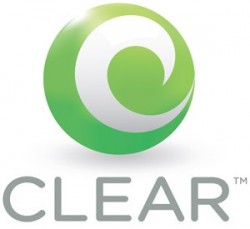 In a report filed by the Wall Street Journal citing SEC filings, Time Warner Cable is the next Clearwire stakeholder preparing to cut its losses on the Clearwire mobile WiMax venture after being one of the principal investors along with Intel, Google and a consortium of cable companies beginning when the mobile broadband provider relaunched in 2008.
In a report filed by the Wall Street Journal citing SEC filings, Time Warner Cable is the next Clearwire stakeholder preparing to cut its losses on the Clearwire mobile WiMax venture after being one of the principal investors along with Intel, Google and a consortium of cable companies beginning when the mobile broadband provider relaunched in 2008.
However, almost from the beginning of the new venture, Clearwire ran into problems involving initial uptake and customer acquisition along with coverage issues that ultimately were key in hindering the growth of the 4G standard despite havy investment from key players such as Intel and Google. The company as a result struggled to gain a foothold in the market despite offering mobile and fixed access options, which led it to quarter after quarter of sustained losses as well as device manufacturers dropping support for the standard in favor of other alternatives such as LTE.
With LTE marking a clear path for mobile broadband in terms of future performance and adoption beginning in 2010, Clearwire struggled to remain relevant in the face of then planned LTE network rollouts by Verizon Wireless and MetroPCS, rollouts that succeeded to drive out WiMax from the general conversation in regards to mobile broadband options, relegating Clearwire to a cheap, value-based option that was not seriously considered unless there were no other viable options for unlimited mobile broadband.
As a result, Clearwire struggled until key cash infusions from partner Sprint Nextel helped prop up the company while Google and Intel sold off their stakes in the company along with former cable company partners including Comcast and Cox Communications, both companies that initially fully supported Clearwire with prominent service bundles and branded hardware for sale including MID devices from Samsung as well as fixed and mobile bundling options when added to standard cable service.
Now, with Time Warner being the latest to cut their losses in the venture at a critical time for the provider, the question is how this will impact Clearwire. The company is in the midst of a massive network overhaul that will see it roll out LTE Advanced starting next year and hinging on having enough cash on hand to complete the build out. Secondly, it is reselling network access to MVNOs at greatly reduced rates, while its partner in Sprint takes advantage of a new network lease deal that sees Clearwire powering 4G access across all Sprint MVNOs with the most prominent being Virgin Mobile and Boost Mobile.
At this point, Time Warner’s Clearwire stake is equal the the stakes of all the others that sold off their holdings in Clearwire within the past two years, with a stake that was previously worth over $550 million at the time of the announcement now worth nearly $73 million, while Sprint remains the largest stake holder without a controlling interest in the company.
Internal analysis from PhoneNews.com pegs Sprint as the eventual buyer for Clearwire, provided the company’s value sinks below an internally predetermined level which would leave Sprint open to purchasing the company outright at a lower cost than expected. The goal of the purchase would involve assuming Clearwire’s existing network infrastructure for future LTE network expansion, as well as directly managing the still operating and somewhat viable WiMax network in the short-term before the eventual and complete transition to LTE within the next 2-3 years for all of Sprint and Sprint’s wholesale partners.
While the purchase would force Sprint to admit its initial missteps with the majority non-controlling Clearwire stake and the difficulties the company faced despite having major backing, the purchase would be a net gain compared to purchasing either/or MetroPCS/T-Mobile as purchasing either company would trigger memories of the failed Nextel integration into Sprint as a result of the infamous “merger of equals” in 2005 and result in net losses for the resurgent carrier, which has had its current ascendant stock price reaffirmed by multiple investment firms, taking into account the recent positive news for the carrier as a whole.